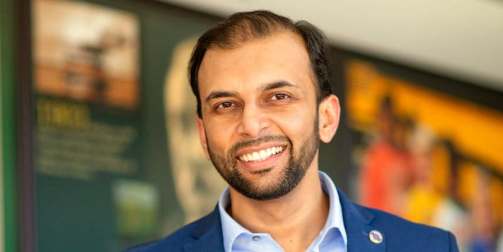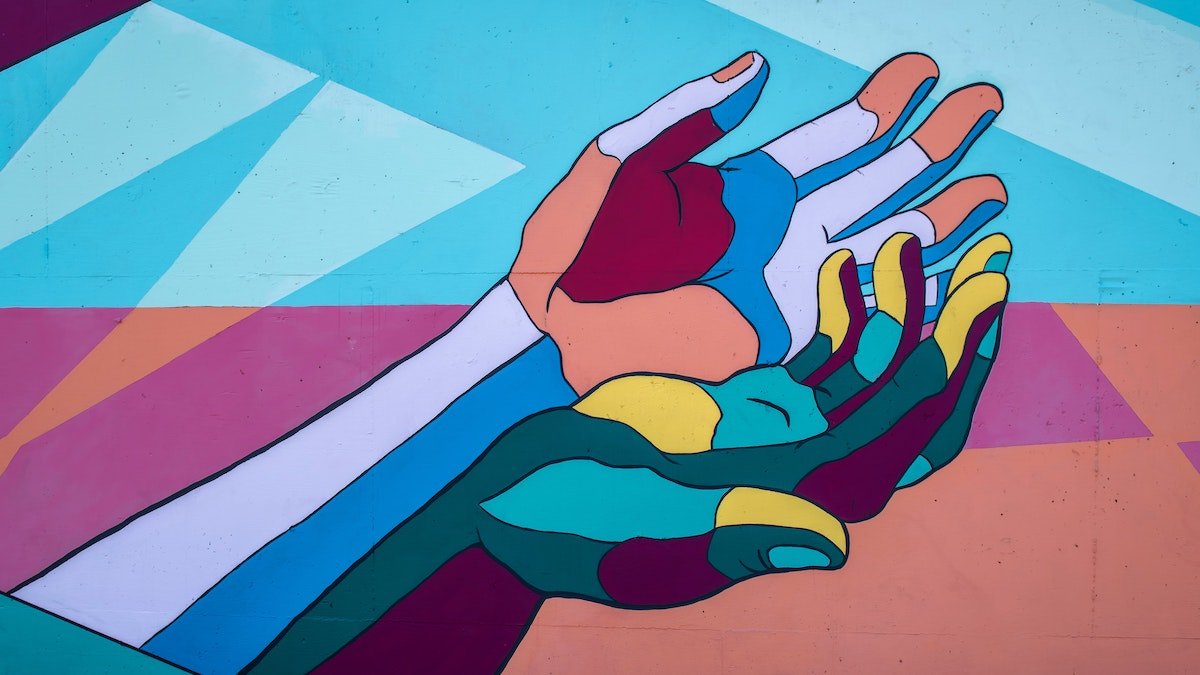“Why do you give?”
If you ask five people this question, you're likely to get five different–and highly personal–answers.
But for many people, the idea of charitable giving is often rooted in their culture or religion. In fact, the three major monotheistic religions of the world all emphasize the importance of charity. So it's no surprise that so many of us are influenced by it.
To learn more, we sat down with three different religious leaders. They helped us take a deep dive to explore religion and giving, especially the similarities and differences in Christianity, Judaism, and Islam.
As you might expect, there are some differences across the religions in terms of giving. However, each of the faith leaders made a point to prioritize the foundational role charity plays in their religion.
Maybe you consider yourself a deeply religious person or perhaps you don't practice any kind of organized religion. Regardless of your faith, all three religious leaders point out easy ways that anyone can make an impact on their community by giving back.
If you've ever wondered how to open your wallet to make the world a bit better, you won't want to miss this conversation.
Giving in Christianity

Justin Warns, a lead pastor at a Christian church in the Detroit metro area, has a lot to say about charity. Simply put, the concept really is Biblical.
The Old Testament & Giving Back
Specifically, the Old Testament underscores how practices of giving were built into Judaism and later Christianity. The book of Leviticus discusses the concept of gleaning.
When you reap the harvest of your land, do not reap to the very edges of your field or gather the gleanings of your harvest. (Leviticus 19:9)
In short, gleaning means that someone with resources should help someone who has less. In the case of farming, a farmer should harvest his land, but not entirely. Instead, corners or other parts should be left behind so that those in need can share in the harvest.
Matters of Heart in The New Testament
Justin also points out that charity isn't limited to the Old Testament. In fact, much of the New Testament and the teachings of Jesus talk about the heart.
For Justin, that's where it becomes most obvious to see why giving matters. He says that generosity is always a matter of the heart. What flows from us out into the world is how the Kingdom of God flourishes.
While many Christians often get hung up on the notion of tithing or giving back a portion of your money to the church itself, Justin says it's important to not let that stop you from giving however you see fit. He does say that most churches are set up to help local, national, and international efforts. Plus, he says that churches exist for both members and non-members. So when someone gives to the church, the whole community benefits.
Of course, giving is not just limited to the church. Instead, people should challenge themselves to give how they can to whomever they can.
Justin encourages everyone to think about giving not just money, but also time and talents. Look for ways to support family, friends, or others going through challenging times and go from there.
Giving in Islam

Qasim Rashid, author and human rights activist, says that giving must be a priority for Muslims. Islam puts two primary responsibilities on every person: duty toward God and duty toward humanity. To fulfill your duty to God, you must also meet your obligation to other humans.
The very idea of practicing faith is interwoven with giving. Qasim says that in order to have prayer, you must also have charity. Charity is broadly defined. It means supporting the less fortunate or anyone who is struggling.
Qasim says that in Islam, worshipping God isn't limited to an individual's home or place of worship. Instead, it is practiced in the community at large. This perspective is echoed in the Quran, which defines a neighbor as someone who lives within 40 houses in every direction.
By viewing humanity as a neighbor, we can better serve God. After all, giving is part and parcel of what we are designed to do, according to Qasim.
Giving in Judaism

Rabbi and author Dave Mason sees tremendous value in giving. He says there are two ways to look at giving. The gift itself and its impact, plus the psychological aspect of giving.
The Eight Levels of Charity
In Judaism, there are different rules or tiers of giving. These levels of charity are set up so that each level is greater than the one before it. Dave explains that the highest level of giving is to give in a way that makes someone independent, where they are no longer in a place of needing charity.
While categorizing or ranking giving might seem confusing or unusual to some people, Dave says that there is a lot of value in it. The different levels encourage introspection and reflection. Givers might ask themselves if they are giving anonymously or seeking credit. You might also reflect on how you feel when you give. Are you giving with a full heart or performing the act begrudgingly?
No matter which level of giving you do, all eight levels matter. Ultimately, by exploring the ways we give, we can hopefully develop a positive attitude about giving to ensure that we give with a full heart.
Religion and Giving – Differences in Location
While much of the conversations focus on the intersection of religion and giving, there are cultural implications as well.
Dave Mason, a rabbi in Israel, contrasted the American perspective on giving with what he sees in Israel. He says that part of American culture seems to be to ask for help privately or not at all. There is a cultural notion of self-reliance and independence.
As a result, Dave sees both people who ask for charity and those who give seem to do so with an air of secrecy. So much so that some Americans who give might feel that it's improper or embarassing to the person to give directly. As a result, many people might feel more comfortable writing a check to an organization that will help on their behalf.
Interestingly, the culture around giving in Israel is almost entirely opposite. Dave's experience with giving in Israel is one in which people seem to see the act of giving as a meaningful interaction. There is less stigma about asking for charity, which is why people give more openly.
Dave says that the real value in this is that it preserves the humanity in the act of giving. It allows people to see that who we give to are, in fact, people who are not really any different from us.
Religion and Giving – The Similarities
Perhaps the most important similarity when it comes to religion and giving is that all three faith leaders stress the importance of practicing. The more we give, the easier the act of giving becomes.
The idea of viewing giving as a muscle came up repeatedly. By making giving part of our routines, we can grow the giving muscle.
While different religions suggest or require different percentages, each faith leader said that it was fine to start small. In fact, people who tell themselves that they have to wait to give until they can larger sums unfortunately never start to give.
Just like you build muscle with a few reps and lighter weights to start, giving just a few dollars or a small percentage is an important part of growing your capacity for giving.
Additionally, all of the religions stress the impact of giving not just on those who receive our gifts, but on the givers as well. When we give to others, we learn to be more compassionate and understanding. Whether we are generous with our time or our money, these gifts allow us to strengthen our community and deepen our connection to our neighbors.
Giving as an Individual
One of the most interesting parts of this discussion on giving is the idea of how an individual goes about giving. All three faith leaders were in agreement that everyone should give and it's best to start practicing right away. But there were actually two different thoughts on how to give.
Some individuals might find that the best way to give is to automate it. Much like you might automate your Internet bill or your 401k, you can make automatic donations to different charitable organizations of your choice on a schedule that fits your budget.
These automatic payments offer two benefits. They don't allow you to overlook giving, and they also help charities quite a bit. Regular donations–even small ones–allow organizations to budget and plan in ways that one-time gifts do not.
However, other individuals might choose to set up their giving differently. Rather than automating it, you might choose to deliberately give each month. Though this process is certainly less efficient, that might actually be the real value. Choosing who to give to each month and manually inputting that donation is one way to reaffirm your commitment to giving back.
Giving as a Family
Dave Mason makes it a point to model giving for his family. He shares that even when his son was a toddler, Dave involved him in the process.
When they visited areas where people frequently asked for charity, Dave recalls passing coins to his child so he could learn the principle of always saying yes when someone asks for help. Now that his son is a teenager, he gives almost automatically. Dave credits that to practicing giving small amounts all the time.

Of course, Dave says that families can and should also practice giving on a bigger scale. While families should strive to give 20%, any amount matters, especially to start.
To make giving more fulfilling and impactful, Dave suggests having conversations about where you want more significant amounts of your money to go. He personally tries to support organizations that cut out as many middlemen as possible. By prioritizing direct giving or organizations where money passes through fewer hands, your charity can have a bigger bang for its buck.
In addition to donating your dollars, you can also give your time and talent as a family. Work together to brainstorm different gifts you share and then come up with a plan to offer them to your community. By involving all family members in the process, it ensures that everyone feels like they are having a real impact on their community. Plus, it makes for some great bonding time.
Check out our favorite ways to make charitable giving a family tradition.
Giving within a Community
Qasim urges all people, regardless of their faith, to consider ways they can support their community.
He says that we must ask how we can meet people's needs. Of course, he believes government and society should also check in on their citizens to see if their basic needs are covered. But he says that in many ways, charity has become a stopgap of sorts. Right or wrong, that makes giving all the more important.
Still, he says that sometimes people don't know where to begin. In addition to giving money, Qasim says to think about your actions as well. In fact, in Islam, even a smile is charity. The act of spreading positivity and good cheer is an act of giving back to your community.
Beyond that, Qasim suggests thinking about the resources your community uses. Is there a YMCA, a domestic violence shelter, a food pantry, or a tutoring center? If so, how could you give some of your time or talents to support those organizations? If you aren't sure, Qasim says to ask.
One of the most effective ways to support charitable efforts is to ask them directly how to help. Let their responses guide you.
Final Thoughts on Religion and Giving
Each of these religions is rooted in the belief that giving back to fellow humans is an act that moves us closer to God.
No matter what role faith plays in your life, you can certainly appreciate the benefits of giving and receiving help. By allowing ourselves time to reflect on how we use our resources, we can have more of an impact on our community and the world around us.
Talk about a powerful part of you and your family's financial journey.
What are your thoughts on religion and giving? What is your favorite way to give back?
Please let us know in the comments below.



2 Comments
Hi Andy,
Fascinating conversation. My religious tradition (Reformed Christianity) teaches that giving should be consistent, sacrificial, and oriented towards both spiritual and practical needs. Giving comes from the belief that nothing we have is truly “ours”– rather, it all belongs to God and we hold it with open hands.
I totally agree that giving is like a muscle– much like saving or investing! Consistency is key. My husband and I started giving 10% of our gross salary when we first started out with a household income of ~$50k annually. It felt like a big sacrifice because our budget was pretty tight, and it definitely limited our ability to save and invest, but I am so glad we did that. It became instilled in us as a strong habit– we don’t even question whether to give now, it’s an automatic instinct. Just like investing in your 401k should be a deeply ingrained habit! No reason we can’t harness that same psychology in giving.
As our salaries have grown, we’ve tried to level up our giving as well– not just in dollar amount but in percentage. We are currently at about 16%. Because of our faith, we do prioritize organizations that serve in the name of Jesus, but we try to have a good balance of spiritual (local church, missionaries, etc.)- and physical (medical/clean water/food/etc.)-oriented giving.
Interesting to consider whether giving should be automated or manual. I think this depends on the person. I personally do like to automate, as it is easiest for the charities to process. Perhaps if you want the consistency of automation but still want it to be intentional and conscious, you could set a monthly reminder on your calendar to spend some time mentally on that organization– check their social media updates to see what they’re up to, read the latest email newsletter, pray for them (if you are so inclined).
We don’t really consider gifts to friends and family as part of our “core giving.” Those feel sort of different to me– as Nicole said in the latest Bread & Wine, our family members are generally quite privileged and don’t need our resources the same way others might. And we consider things like wedding gifts, graduation gifts, etc. fun opportunities to be generous, but not quite in the same category as our consistent charitable giving. On the other hand, we know people who do intentionally pour tons of money into giving to their own families, whether supporting aging (broke) parents, helping with crippling medical bills, taking a struggling relative into their own home, or fostering and adopting kids. That is so amazing and inspiring, and takes a lot more work than writing a check.
I appreciate you sharing this with me!
Everyone’s version of giving is different and it’s interesting to hear what everyone prioritizes.
It’s all about supporting your priorities and family values! As our stage in life changes so may those priorities :)